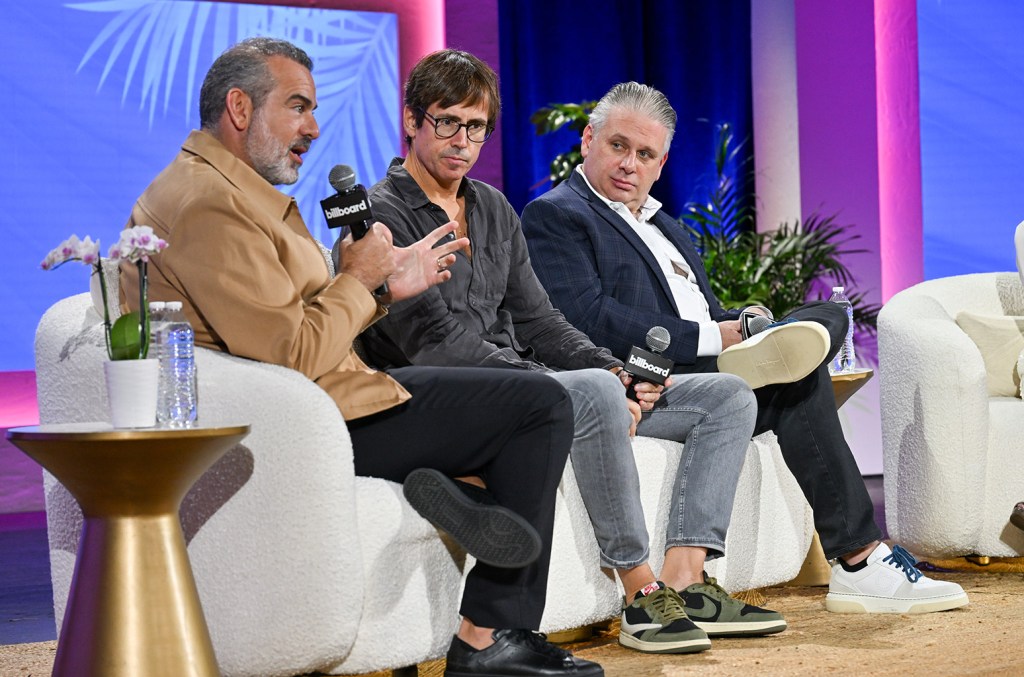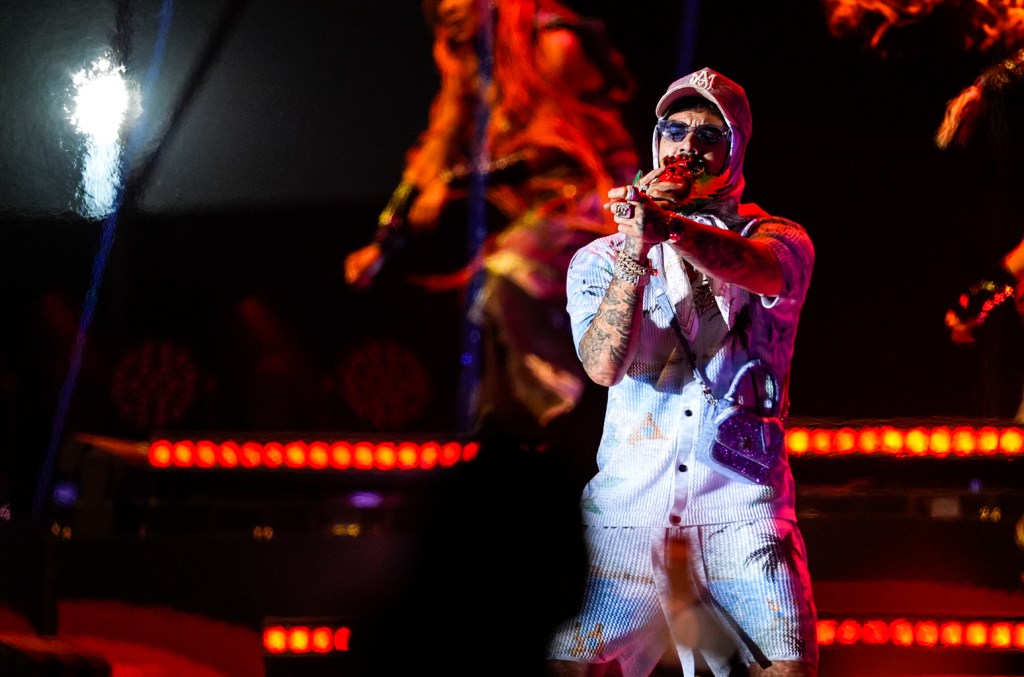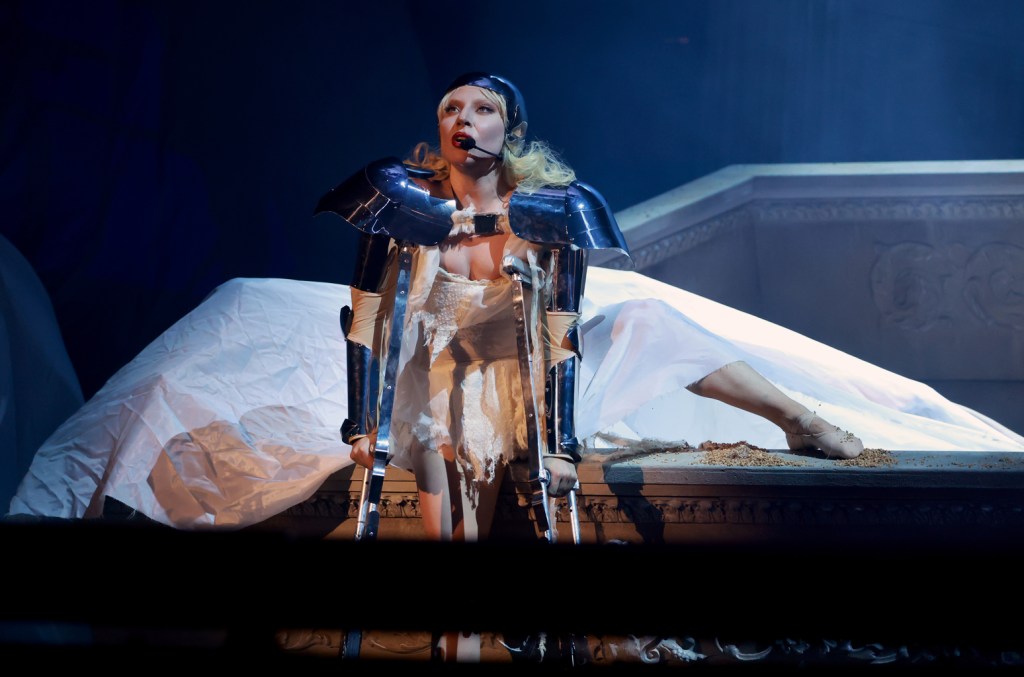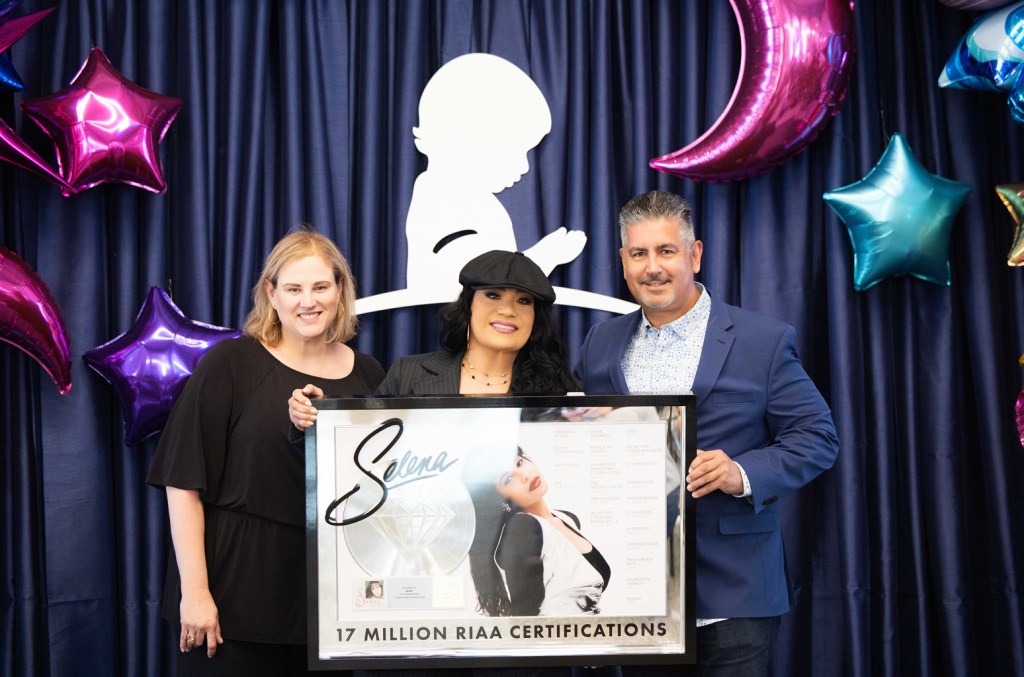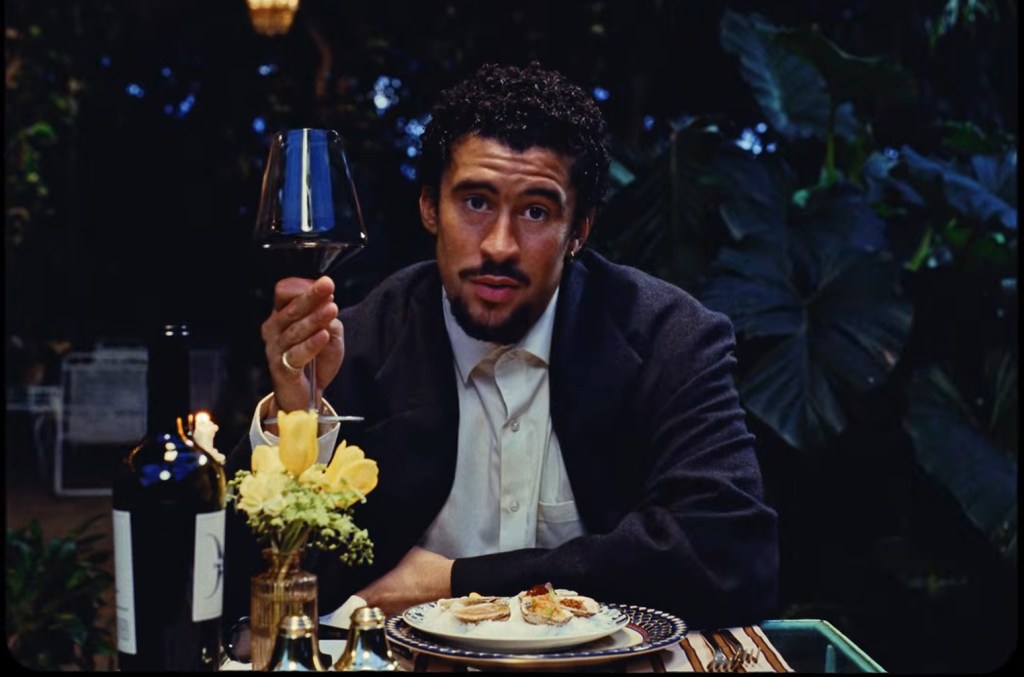Three “OGs” from the Latin music industry converged on Monday (Oct. 14) at the 2024 Billboard Latin Music Week, where they discussed the challenges they face today from the perspectives of recording, management and live entertainment.
During the “Power Players: The OGs” panel — moderated by Billboard‘s Leila Cobo — Alex Gallardo, president of Sony Music Latin; Alex Mizrahi, CEO of OCESA Seitrack; and Nelson Albareda, CEO of Loud And Live, agreed that while today’s music offerings are more diverse and democratic than ever, all sectors of the business face significant challenges for this very reason.
From standing out and conquering the market, to the importance of building a career step by step, here are some of the best quotes from these Latin Music Power Players.
Gallardo: “From the label’s point of view, something that we find very interesting now is the variety of genres that are working, that are emerging. Three years ago, there was one dominant genre which was more urban; now we see cumbia, salsa, Argentine music, regional Mexican, and I find that very interesting and a great opportunity. [But] now it is more difficult for an artist to conquer all of Latin America because, for this very reason, it becomes more local. Making that regional conquest is a bit more complex.”
Mizrahi: “I would add that, from the recording point of view, it is easier to generate a hit today more than ever because the platforms are more democratic than ever. The artist’s access to the fans is direct. From the live music side as management, the biggest challenge is that the artists reconcile their repertoire, that they generate enough hits to make their fans want to buy a ticket. Today I feel there are more successful artists than ever before and I don’t see many artists selling tickets. For me, that’s the biggest gap between recorded music and live shows.”
Albareda: “From the live point of view […] ticket sales are not what they used to be. You have 20 markets, and now not all of them sell, especially this year. Before the covid pandemic, artists didn’t have to work much, they posted something and it sold. Even the price, if we were selling a ticket at $110-120, now it’s at $80. I would say we have to work even a bit more than before the pandemic.”
Gallardo: “Twenty years ago, for an artist to access a studio there were a series of filters, a label would have to be interested, etc. Now it’s a beautiful era where any kid at home can create […] That means there are more potential artists, but also the offer is much greater. The last data I was told about is 120,000 songs a day. When there is such much offer, what does the audience stick with? That’s our job.”
Abareda: “There are so many artists, how can we give them the opportunity to play live? There is also a saturation of the live show. Streams themselves are not hurting you because you are already paying for a subscription to a platform, but when you have to pay for a ticket…”
Mirzrahi: “When people leave their house (to go to a show), they don’t go alone; they have to pay for parking, they go to eat something. The live concert is an experience. We as management have to say, ‘this artist has to have the power in the music, the personality, the speech to get you out of your house […] and bring you to this world, to this experience. And you should leave saying, ‘It was worth it.’ What is our challenge? Building the experience with repertoire, with personality.”
Gallardo: “Something that never goes out of style for an artist is to work your repertoire in the best way possible, make the best songs possible, and raise the bar. There’s more competition. How do I stand out? By raising the bar in my songwriting, and then, once I have this song, seeing how I release it, how I tell the world about it. Releasing a song is not something you can do one day to the next.”
Abareda: “We have to do a reset. Artists want to go out and sell arenas, but you have to start small, grow and build an audience. If you want the money today, you’re not building a career […] You have to build an audience, invest in a career, and take the long road.”
Mizrahi: “The role of the manager is sensibility, he has to talk to his artist. The industry is undergoing a revolution on all sides. These mega hits that are made on Spotify and Youtube with millions of streams and views […] that’s good news, but from there to be releasing 100,000 songs every Friday, wow! The algorithms (shoot up the ticket prices)… artists want more, and you have to have the sensibility to talk to the artist, explain things.”
Over the past 35 years, Latin Music Week has become the one, steady foundation of Latin music in this country, becoming the single most important — and biggest — gathering of Latin artists and industry executives in the world. Initially named Latin Music Seminar, sponsored by Billboard, the event traces back to 1990, where it kicked off as a one-day event in Miami featuring a two-artist showcase and awards show.
Latin Music Week coincides with the 2024 Billboard Latin Music Awards set to air at 9 p.m. ET on Sunday, Oct. 20, on Telemundo. It will simultaneously be available on Universo, Peacock and the Telemundo app, and in Latin America and the Caribbean through Telemundo Internacional.

